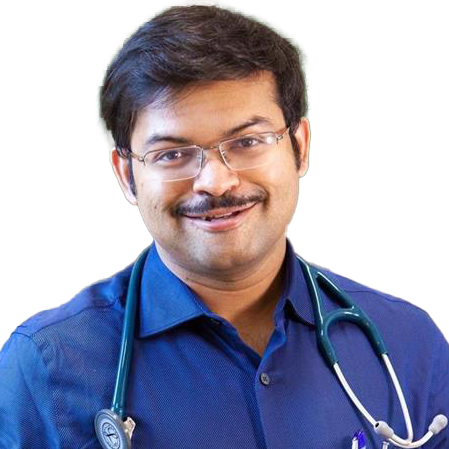Dr Abhishek Ray, specialty registrar in gastroenterology and general internal medicine (GIM), arrived in the UK in 2018 as an international medical graduate (IMG) from India. In this piece – part of our #NextGenPhysicians blog series – Dr Ray explores the huge culture shock of practising and training in medicine from one country to another.
One of the first things I remember upon starting my work as a doctor in the UK was that there was a lot of emphasis on non-clinical skills. Communication skills were given a huge amount of importance, particularly when managing complex patients as part of a multi-disciplinary team (MDT) and working together with nursing, therapy and social services colleagues. I quickly realised this was an essential skill if we were aiming to provide holistic care to patients and adopt a patient-centric approach while providing treatment.
I still remember my first day, when I was brought in to the Acute Medical Unit (AMU) board meeting and doctors across all grades, from F1s to consultants, the nurse in charge, physiotherapists, occupational therapists and the discharge coordinator, were all discussing patients. It was something simply unimaginable back home. My learning started from that day itself. Although I picked up the clinical things quite fast, owing to my extensive experience back home, familiarising myself with the system was the main challenge. I was fortunate enough to work somewhere where my senior colleagues were very helpful, patient, and encouraged me throughout my time there. I wanted to pursue gastroenterology as a career, so I tried my best to explore all opportunities available to me.
Outside of the hospital, there were educational opportunities available, some out-of-hours educational sessions provided by the RCP and some during hours, which I needed to take annual leave for. Slowly and steadily, I strengthened my foothold and started to do independent out-of-hours shifts. Sadly, audits and quality improvement projects (QIPs) were totally unfamiliar to me and getting my head around them was of paramount importance for career progression. I started to prepare for my MRCP exams and although I managed to clear part 2 written straight away (I had already cleared part 1 during my stay in India), PACES proved quite challenging. It needed smart preparation with very structured training, and by the time I’d realised that I’d already had two unsuccessful attempts.
Just as I was about to apply for my third attempt, COVID hit and everything changed. Severe work pressure, staff shortages owing to sickness, a lack of training opportunities, and the cessation of exams meant that I was forced to take a break in terms of career progression. As a non-trainee doctor, I was low down on the priority list of candidates who were offered a place for the exam when they restarted. It was a great relief when I finally managed to get a place, passed the exam and successfully applied for gastroenterology training.
My whole journey to date has taught me that while there will be surprises along your career path that can often change things for the better or sometimes for the worse, it’s important to be flexible and adaptable to the present situation. No one can predict the future, but I always believe that every problem has its own solution. Since the pandemic, the existing NHS workload has increased exponentially and the cost of living has gone up disproportionately compared to pay increments. This has forced doctors to pick up extra shifts for that extra money needed to survive. So, on days when they were supposed to rest, they have ended up working. As a result, many staff are exhausted to the point of burnout and some decide to quit medicine altogether, which is a loss for both the individual and for our society.
While there’s no easy fix for the workforce crisis, there are things that can be done to improve the lives of doctors working under pressure. A simple ‘Thank you for all your hard work’ goes a long way, instead of ‘work a bit harder’. I have been fortunate to have worked in trusts where people look after each other. As a senior colleague, I make sure that my juniors are well supported, appreciated and looked after while they are on shift with me. It’s easy to blame the system, but the important thing is ‘how have we contributed to resolving the issue?’.
Coming to this country to work in the NHS, which is still considered as a leading healthcare system globally, my overall experience has been nothing less than rewarding. The inclusivity and diversity in the UK meant that I was warmly welcomed with open arms and made to feel completely at home. There is good work-life balance which means I can look forward to unwinding myself with a refreshing holiday 2–3 times a year. I’m very much looking forward to becoming a consultant here in the UK once I finish my training.
This piece is part of the RCP's #NextGenPhysicians series of guest blog posts. If you are an early career doctor with a story you’d like to tell, please contact Hannah.Perlin@rcp.ac.uk.






